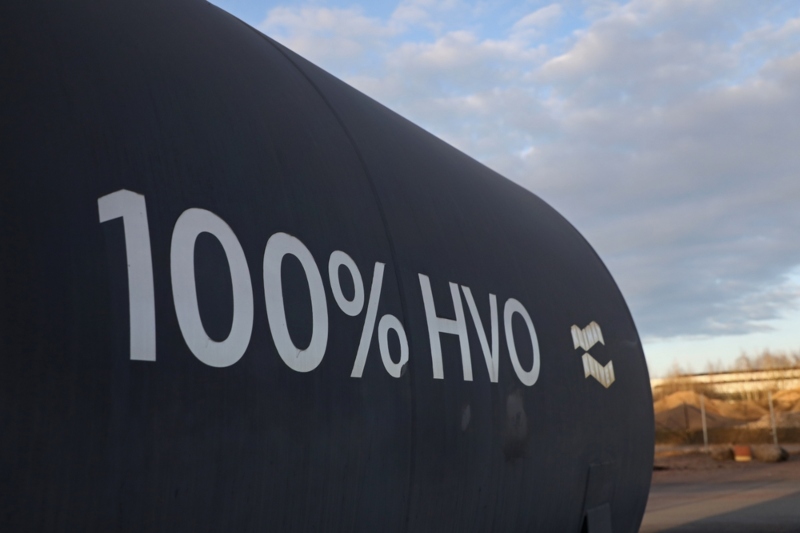Bromsgrove and Redditch councils’ shared fleet is saying goodbye to fossil fuels and welcoming hydrotreated vegetable oil (HVO).


The councils today announced that they have finished swapping their fleet of vans and bin lorries over to HVO as part of the effort to go net zero.
Dropping the use of diesel means a reduction of CO2 emissions of up to 90% from the fleet. This amounts to 507 tons less of the greenhouse gas every year – more than the weight of three blue whales.
Both councils also noted that the move helps to extend and improve the useful life of the existing vehicle fleet, enabling more value to be got from the already-emitted carbon costs of their original manufacturing.
Redditch Borough Council’s portfolio holder for Environmental Services, Cllr Peter Fleming, said: ‘Moving away from fossil diesel to a lower carbon fuel is part of this council’s long-term commitment to cutting carbon emissions, which has only grown since the climate emergency was declared.
‘Because we can just swap out fossil diesel for HVO, it’s a cost-effective move that’s slashed our emissions now while we continue to make use of the vehicles we’ve already got – all while work continues on what our future vehicles could look like.’ HVO is a form of cleaner diesel made to British Standard EN 15940, a
‘paraffinic diesel fuel specification that governs a new generation of cleaner transport fuel for use in road vehicles’. It is derived from oils and fats, such as used cooking oils, non-food grade crops, and animal fats left over from food processing, and can include renewable sources.
Bromsgrove District Council’s portfolio holder for Environmental Services, Cllr Margaret Sherrey, said: ‘We are all aware of the climate emergency and the pressing need to act in ways that reduce our emissions. This move has immediately and substantially reduced our emissions and, as HVO is interchangeable with fossil diesel as a fuel, it doesn’t break the bank either.
‘By giving us a greener way to maximise the remaining lifespan of our existing vehicles, HVO is a useful stepping-stone towards making our fleet as carbon neutral as possible until it’s time to replace the vehicles altogether.’